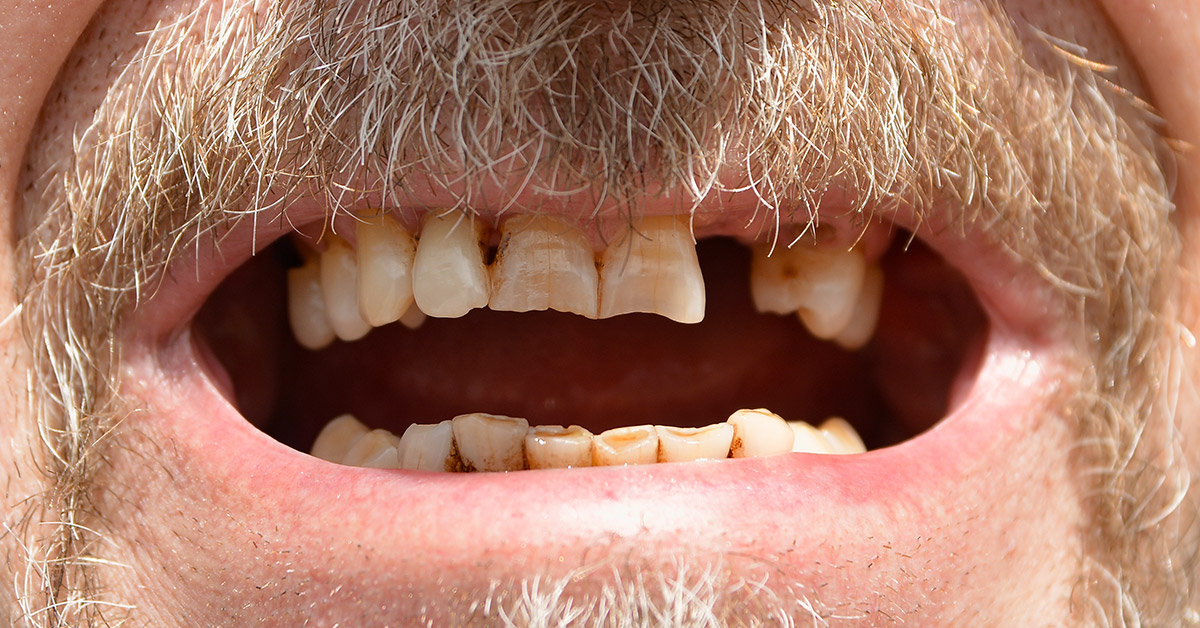Gum disease, especially the kind that is irreversible and causes tooth loss, may be associated with mild cognitive impairment and dementia 20 years later, according to a School of Public Health study published in the journal Neurology.

“We looked at people’s dental health over a 20-year period and found that people with the most severe gum disease at the start of our study had about twice the risk for mild cognitive impairment or dementia by the end,” said study lead author and Associate Professor Ryan Demmer. “However, the good news was that people with minimal tooth loss and mild gum disease were no more likely to develop thinking problems or dementia than people with no dental problems.”
The study involved 8,275 people with an average age of 63 who did not have dementia at the start of the study. The participants were assessed for mild cognitive impairment and dementia. Participants received a full periodontal exam that included measuring gum probing depth, amount of bleeding and recession.
Then participants were put into groups based on the severity and extent of their gum disease and number of lost teeth, with implants counting as lost teeth. At the start of the study, 22% had no gum disease, 12% had mild gum disease, 12% had severe gum inflammation, 8% had some tooth loss, 12% had disease in their back teeth, 11% had severe tooth loss, 6% had severe gum disease, and 20% had no teeth at all.
A total of 4,559 people were assessed at the end of the study, when they had been followed for an average of 18 years.
Overall, 1,569 people developed dementia during the study, or 19%.
The study found that:
- People who had healthy gums and all their teeth at the start of the study, 264 out of 1,826, or 14%, developed Alzheimer’s by the end of the study;
- those with mild gum disease, 623 out of 3,470, or 18%, developed Alzheimer’s;
- participants with severe gum disease, 306 out of 1,368, or 22%, developed Alzheimer’s;
- 376 out of 1,611 people with no teeth, or 23%, developed Alzheimer’s.
When looking at both mild cognitive impairment and dementia, the group with no teeth had about twice the risk compared to participants with healthy gums and all their teeth. People with intermediate or severe gum disease, but who still had some teeth, had a 20% greater risk of developing mild cognitive impairment or dementia compared to the healthy group. These risks were after researchers accounted for other factors that could affect dementia risk, such as diabetes, high cholesterol, and smoking.
“Good dental hygiene is a proven way to keep healthy teeth and gums throughout your lifetime. While our study does not prove that an unhealthy mouth causes dementia and only shows an association, further studies are needed to demonstrate the link between microbes in your mouth and dementia,” says Demmer.
*This post was derived from a press release issued by the American Academy of Neurology.

